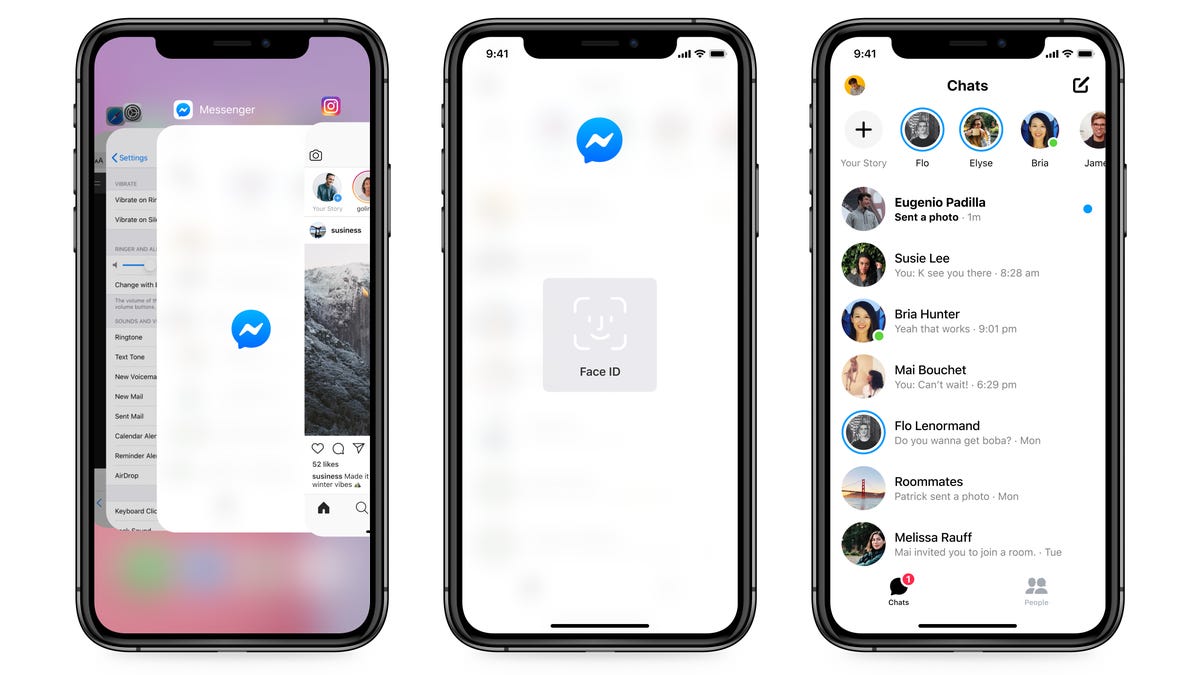Facebook's Messenger launches new privacy features
Users will have more control over who can see their chats and who can message them directly.

App Lock, a new feature for Facebook's Messenger, lets users choose whether to require device privacy settings like Face ID to unlock Messenger.
Facebook on Wednesday rolled out two new privacy features for its Messenger platform. The features are designed to give users more control over who sees their chats and who can contact them.
First, App Lock allows you to use your device's privacy settings, such as fingerprint or face authentication, to unlock Messenger. The feature is designed to prevent anyone borrowing your phone from accessing your chats. It's currently available on iOS and is coming to Android in the next few months.
Facebook is also launching a new centralized section for privacy settings, where users will have easier access to App Lock, blocked people and more.
Additionally, the social network is working on new controls that allow users to choose who can directly message or call them, who goes to the message requests folder and who won't be able to message or call at all. Facebook will also be testing a feature that blurs images in the message requests folder, so users don't have to see images from people they don't know before replying or blocking or reporting an account.
The social media giant has faced criticism for not adequately protecting user privacy across its platforms, a heightened concern following the Cambridge Analytica scandal, in which the personal information of up to 87 million Facebook users was improperly accessed. Last year, Facebook found millions of Instagram passwords had been stored in plain text, and the company had reportedly gathered email contacts of around 1.5 million users without permission for several years. As the world's largest social network, Facebook controls data on more than 2 billion people.

